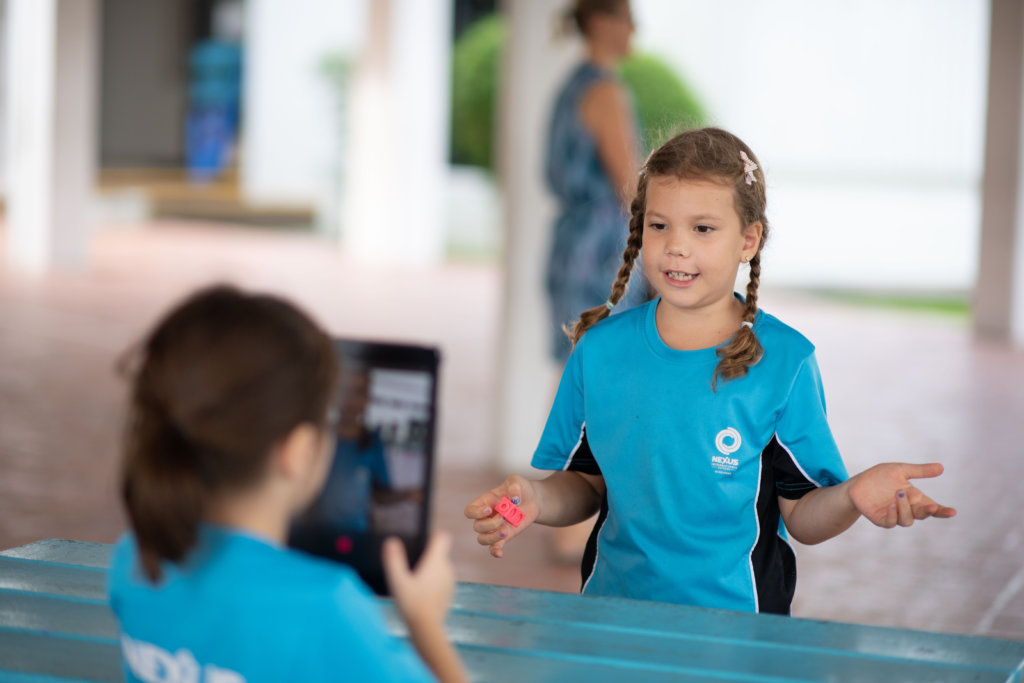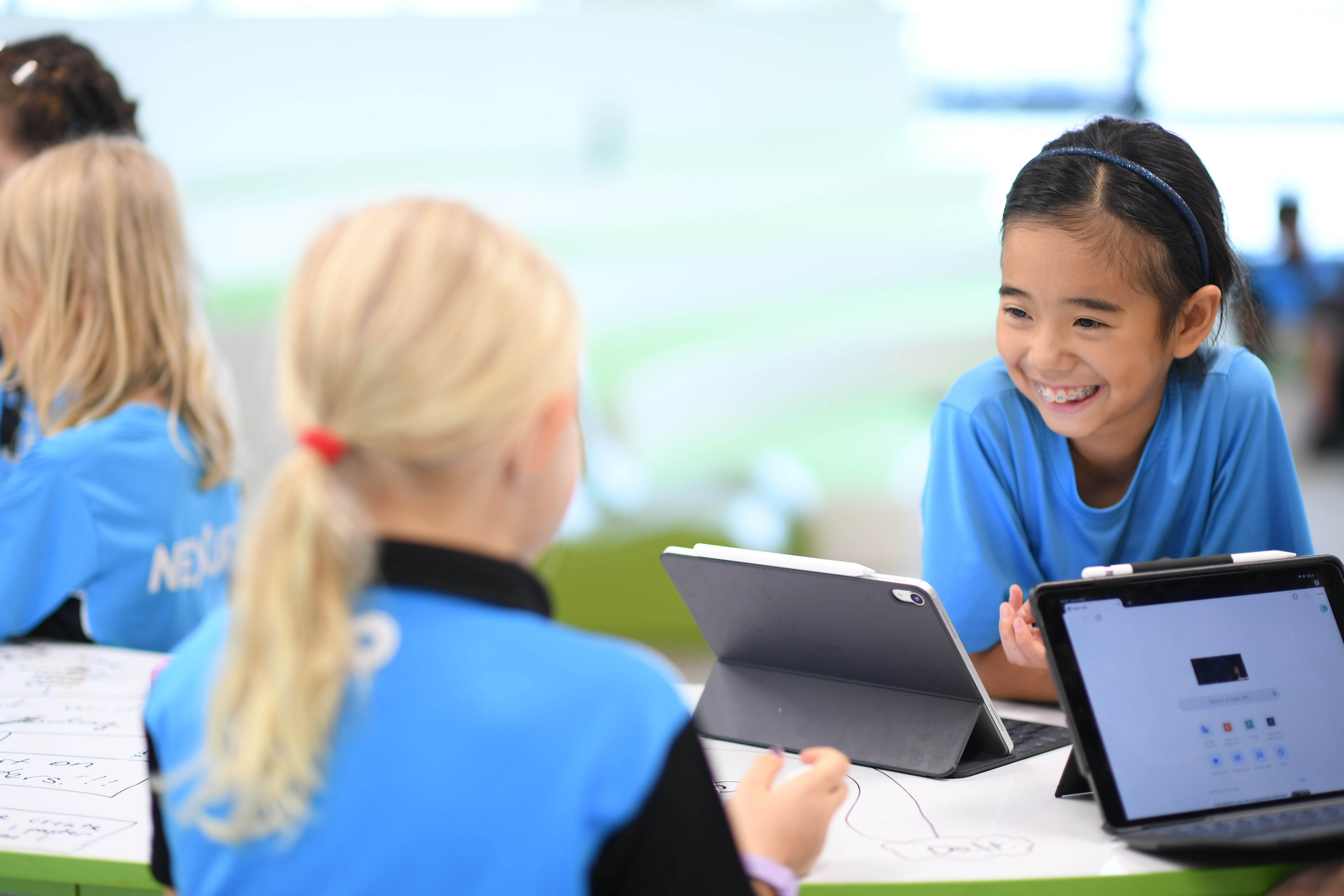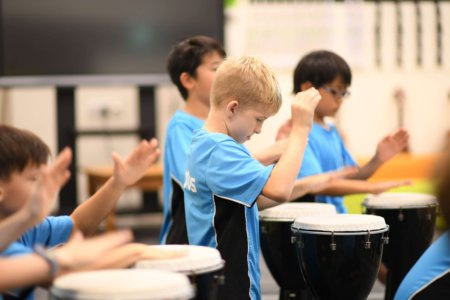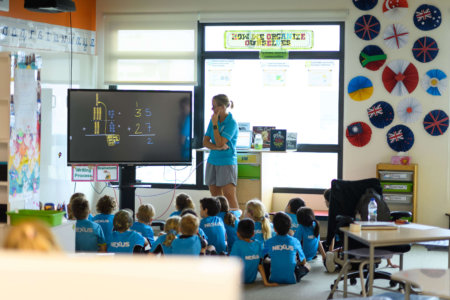In a complex and changing world, it takes more than knowledge to continuously push the boundaries of one’s thinking. Nurturing out-of-the-box solutions to challenges, whether in or outside of the classroom, starts at a young age. A study in 2019 observing OECD schools found that innovative practices in primary education are associated with stability and positive learning outcomes.
At Nexus International School (Singapore), young minds are nurtured through a transdisciplinary approach that fully facilitates a creative and process-focused education. The key to this method is “The Nexus Way,” a holistic guiding philosophy that includes Mindsets, Innovation, Inclusion, and Relationships. It emboldens young learners to be problem finders and solvers in different situations.
The school recognises that a truly innovative primary education is not just about technology. Most importantly, children need to feel supported in their abilities to arrive at unique solutions to the challenges that they face. It is this attitude that empowers them to take ownership of their learning, hence developing a growth mindset that is essential for adaptability in a world of accelerating change.
Inquiry-based learning
Children are naturally inquisitive beings who are constantly exploring how the world works, and how they relate to it in their immediate environment. The Nexus International Primary School provides a rich, dynamic, and future-forward setting for learners aged three to 11 to build a strong foundation in critical skills such as reading, writing, numbers and scientific understanding.
To foster an international outlook in young learners, Nexus adopts the globally-recognised International Baccalaureate (IB) Primary Years Programme (PYP) curriculum. Taught in over 109 countries in the world, the PYP is one of the world’s most transferable syllabus that fosters learning agility among learners, enabling them to make connections in knowledge application outside of the classroom.

Learners at Nexus are offered a wide range of subjects that nurture passion, creativity, and curiosity that spark inventive thinking. Source: Nexus International School (Singapore)*
Nexus places a strong emphasis on the Approaches to Learning (ATL) aspect of the IB curriculum. At its heart, the ATL promotes a range of skills that are grouped as communication, social, self-management, thinking and research. These are taught through the school’s thoughtfully-planned units of inquiry. For instance, research skills could be the focus of the history-based “Where We Are in Place and Time” unit of inquiry into migration.
As a result, learners who undergo the ATL develop a solid foundation that prepares them for the IB’s Middle Years Programme (MYP) (MYP) in Years 7 to 9. The future-proof skills developed in their early years arm them with the necessary tools that encourage them to confidently share their thinking and perspectives, which are useful all the way through their careers in jobs that are yet to exist at the moment.
A future-forward campus for bright young minds

Nexus International School Singapore
The school’s new state-of-the-art campus boasts a futuristic building, complete with learning spaces that are purposefully designed to spark curiosity and exploration. Nexus knows that an education extends beyond four walls, and having open spaces is essential to nurturing open minds.
For this purpose, the campus boasts flexible learning spaces where primary learners can engage in collaboration, a double-storey treehouse, a 65-metre long Science Mega Lab, an expansive outdoor play deck, and spacious libraries, among many other spaces for learning. Their extracurricular experience is further enhanced with facilities that include an Olympic-sized swimming pool, two sports halls, climbing walls, and a FIFA and World Rugby-approved artificial turf for sporting activities.
So, what does a day look like for primary learners in this sophisticated school? As soon as learners enter the campus each day, they are greeted with friendly smiles from homeroom teachers and classroom assistants who are invested in their growth. The day often starts with lessons in either language arts or mathematics, which may involve collaboration with other classes. Relationships are a key part of The Nexus Way and conversations between teachers and peers are seen as valuable in building self-esteem.
An Apple Distinguished School, Nexus learners use iPads to support their inquiry during lessons. After snack and break times in the school’s outdoor spaces, lessons are resumed in any one of the units of inquiry. Lunch hours are taken at the cafeteria, which provides an enticing selection of Western or Asian cuisines, followed by another play break.
Learners spend time in single specialist subjects such as music, physical or health education, and language studies. They cap off their day with a special period for introspection, where they quietly reflect on their learning, celebrating milestones and planning their next steps.
In a world of constant change, there is no better preparation for young learners to face what is to come than a wholesome education which impels them towards independence. The Nexus Way reinforces resilience, learning agility, and connectedness that can be applied in various aspects of their lives, resulting in responsible and compassionate individuals who understand their vital role in the global community
* Pictures featured were taken before the COVID-19 pandemic.
Follow Nexus International School (Singapore) on Facebook, Instagram and YouTube













